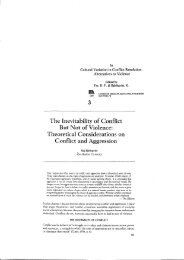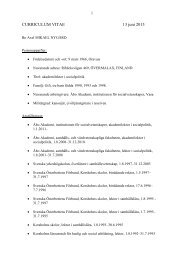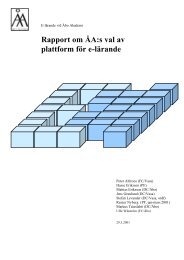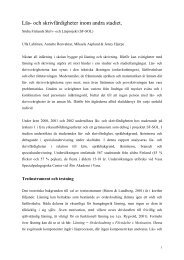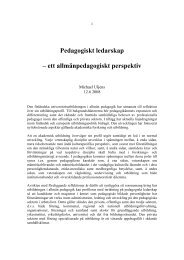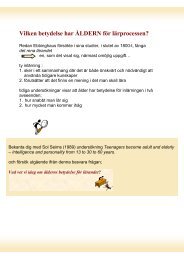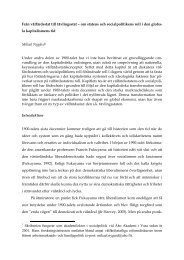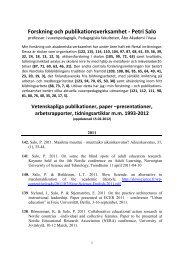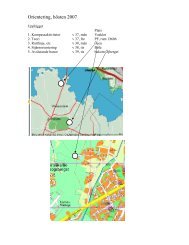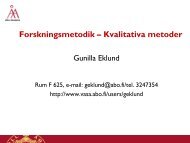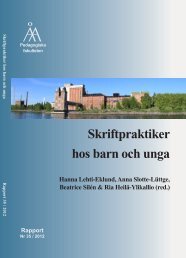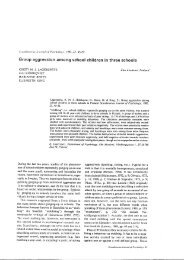Parties, Candidates and Citizens On-Line - Åbo Akademi
Parties, Candidates and Citizens On-Line - Åbo Akademi
Parties, Candidates and Citizens On-Line - Åbo Akademi
You also want an ePaper? Increase the reach of your titles
YUMPU automatically turns print PDFs into web optimized ePapers that Google loves.
underst<strong>and</strong>ing of the normalization <strong>and</strong> equalization theories, the findings are a step<br />
forward. Likewise, in the discussion on the operationalization of the dependent variable,<br />
the study shed light on how the findings per se have been constructed by different<br />
scholars. Findings interpreted as normalization were found to depend on either off- <strong>and</strong><br />
on-line visibility, or website performance being dominated by major parties. Findings of<br />
equalization appeared mostly dependent on smaller parties staying in stride with the major<br />
parties in terms of website performance.<br />
Thirdly, the general QCA analysis found two minimum logical conditions either of<br />
which had been present in the studies where normalization had been found. The analysis<br />
found one minimum logical condition for findings of equalization. Pertaining to the<br />
general spread of the theories, this indicates that normalization has been found in more<br />
varied conditions than equalization. Objectively speaking, equalization appears dependent<br />
on more uniform conditions than normalization. Obviously, this conclusion must be<br />
regarded as quite tentative due to the low number of cases used in the analysis.<br />
Fourthly, the findings provide interesting information on how the combinations of<br />
different independent variables are linked to the dependent variable. Given that the<br />
dependent variable has been operationalized in sufficiently similar ways by scholars, this<br />
information also provides an important piece of information in underst<strong>and</strong>ing the causes<br />
of normalization <strong>and</strong> equalization. However, in a theoretical perspective, these findings<br />
seem somewhat surprising. For the first minimum condition linked to findings of<br />
normalization – dichotomous measurement of party websites in plurality election systems<br />
in countries with low technological development – the absence of both high technological<br />
development <strong>and</strong> scaled measurement contradicts the logic of the operationalizations of<br />
these variables. The QCA, however, views the independent variables as dependent on<br />
each other <strong>and</strong> does not give any specific information on the explanatory power of the<br />
individual independent variable. The first minimum logical condition linked to findings of<br />
normalization could, therefore, indicate that the presence of a plurality election system<br />
has resulted in findings of normalization even though two unfavourable conditions were<br />
present. Concerning the second logical minimum condition for findings of normalization<br />
– scaled measurement of party website contents in countries with a long history of<br />
democratic status, high technological development <strong>and</strong> unrestricted media environment –<br />
the conditions are in line with the theoretical discussion. The election system is, however,<br />
irrelevant to the outcome in this condition. It would seem that normalization occurs when<br />
the election system is plurality but no other favourable conditions are met, or regardless of<br />
the election system when all other conditions are favourable.<br />
<strong>On</strong>ly one minimum logical condition was found for findings of equalization:<br />
scaled measurement of party websites in countries with a long history of democratic<br />
status <strong>and</strong> a more open on-line than off-line media environment. Again, both the history<br />
51



